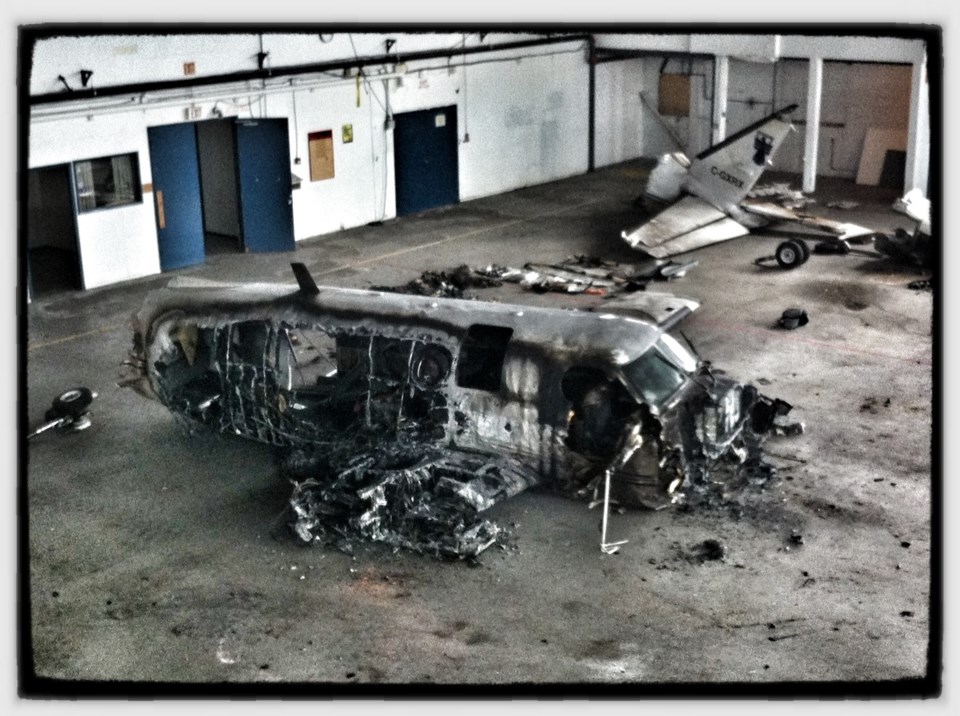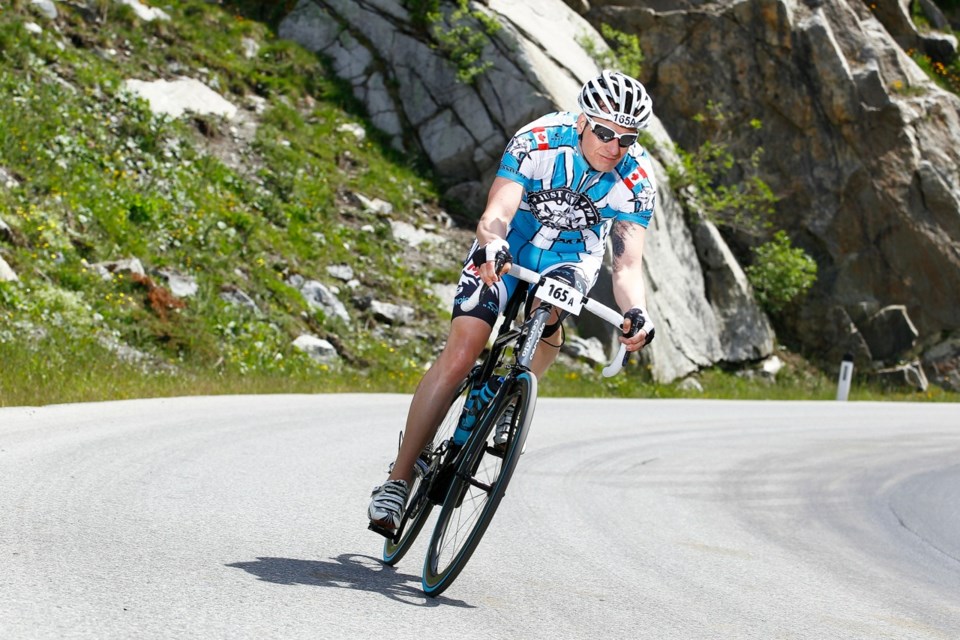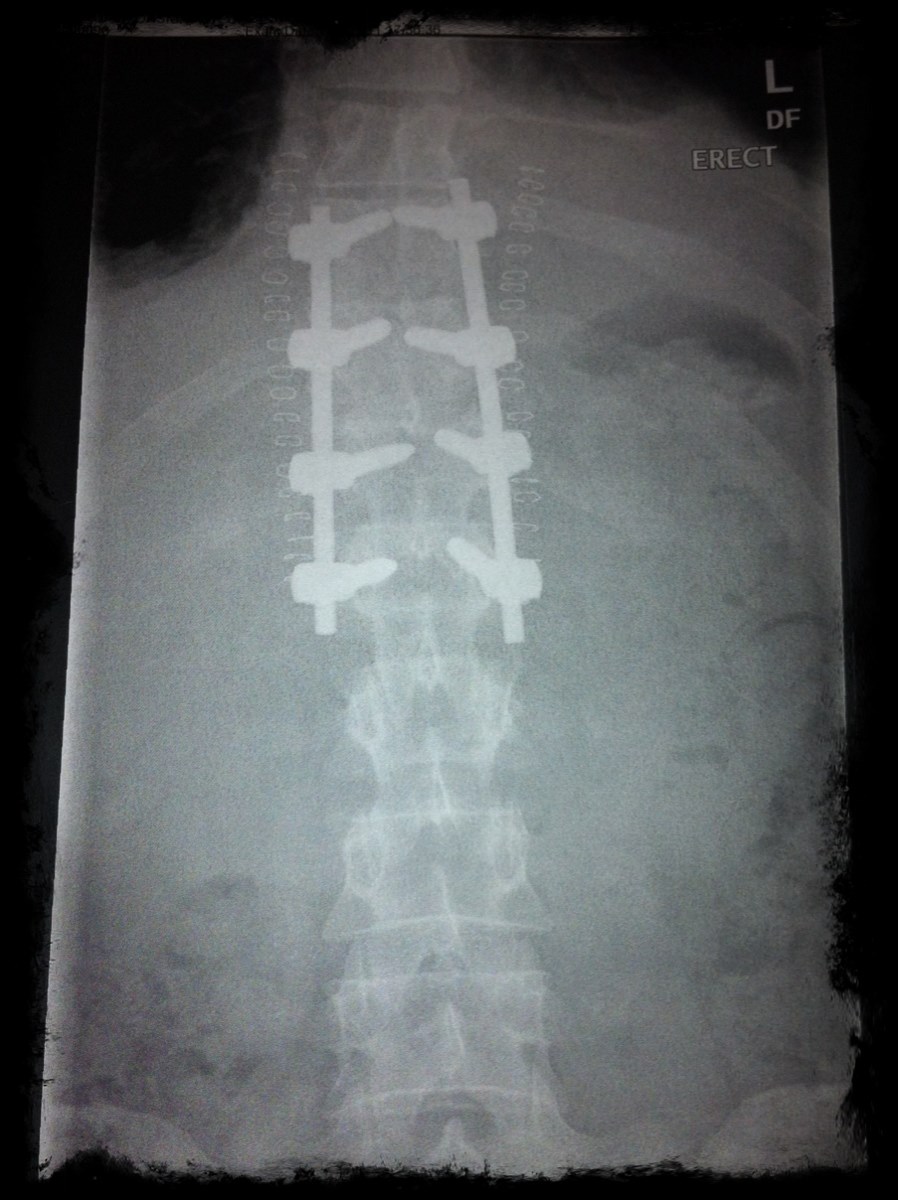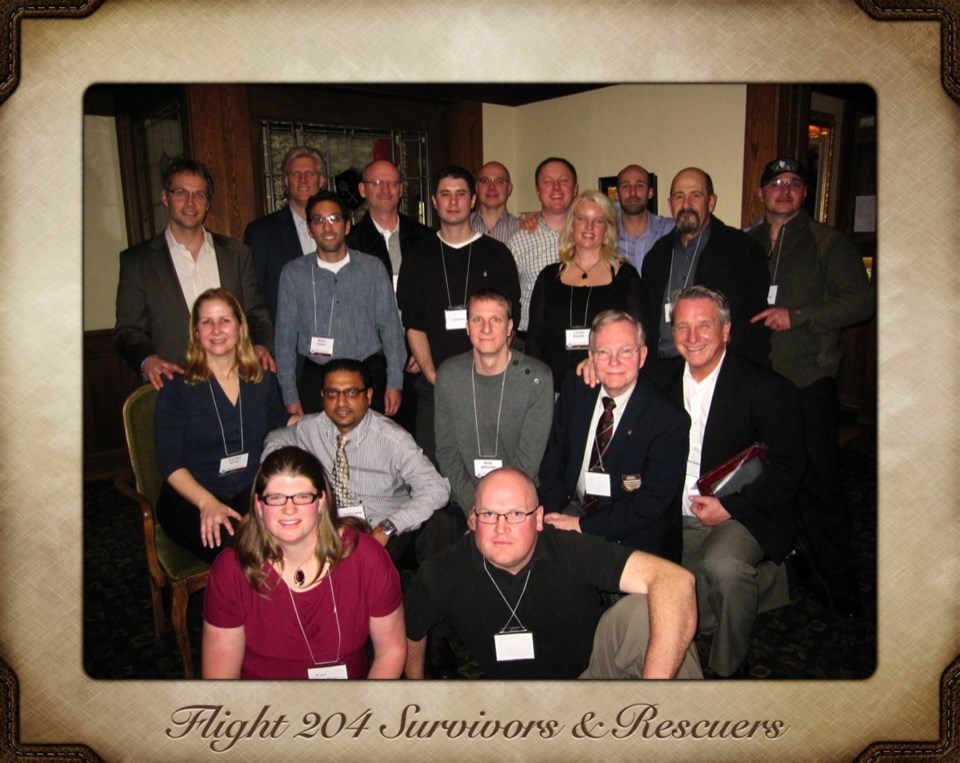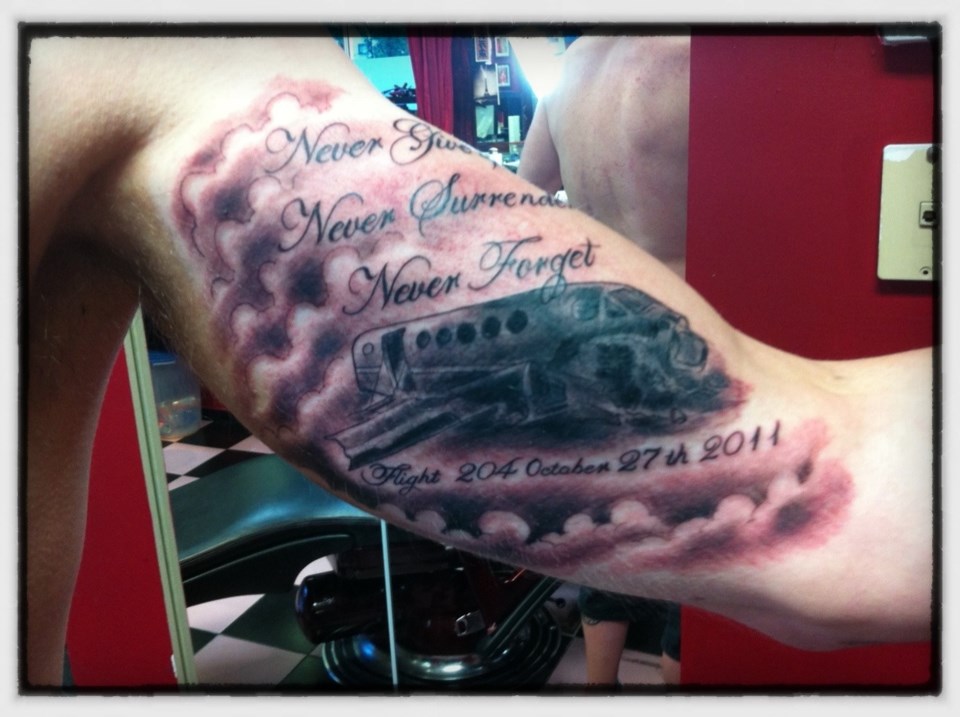Kelly Jablonski is one of 7 survivors of flight 204 which crashed onto Russ Baker way just short of YVR a year ago today. Passerby who rushed to assist were able to help the 6 other passengers off the burning plane, but due to Kelly's position at the front of the passenger compartment the flames had become too intense for anyone to safely assist him in getting out. Somehow, in all the chaos another passenger, who realized he couldn't assist in getting Kelly out thought to unbuckle his seatbelt, allowing him to get on to the floor of the plane and ultimately put enough distance between himself and the flames to survive the ten minutes it took for rescuers to get to him. An interesting reminder of what a game of inches life can be sometimes. Kelly's survival and the survival of the other 6 passengers on the plane is a pretty amazing story by itself. It becomes even more amazing when you consider that 8 months after being here:
Kelly was here:
Participating in the Trans Alp, a challenging 900 km multi stage bike race held every year in the mountains of Italy and Germany. Kelly is a member of the Just Giver 4PD cycling team who partner with the Parkinson Society British Columbia goal is to raise awareness of Parkinson's disease and also to encourage physical activity among those affected by the disease. My Brother in Law is a friend and teammate of Kelly's, and when he joined our family recently for Thanksgiving dinner (guess what he was thankful for?) he agreed to answer some questions about his recovery and what kept him motivated through some of the more difficult moments.
Q: At what point did you decide to push forward with getting back to training for the Trans Alps trip? It almost seems as though you hardly entertained the possibility that it might not happen.
A: Within an hour of being brought out of an induced coma Trans Alp was at the top of my list of concerns. That early after the crash I was on assisted breathing so only had the ability to write down what I wanted to say and I still have the piece of paper that I scribbled on asking the Doctor and my family if I could still go to Trans Alp. It all seems nuts when I look back that I was at all concerned or even cared about Trans Alp when I was literally clinging to life. Thru the first 4 to 6 weeks i was very aware of shape I was in but somehow just kept asking the Doctors if it was possible. With approximately 40% of my upper torso broken, rods and screws to fuse my spine and multiple internal injuries I realize now that most of my doctors and physiotherapist at that time were really just playing along and helping to keep my spirits up. But in my mind as long as they kept saying it was possible I kept it as my goal. After a few setbacks and a final spinal surgery in late January I started to think that it may not be possible. Recovery from said surgery went better than expected and was given clearance to get back to the gym within 14 days of surgery which was approximately Feb. 12th. So the quest continued with the final hurdle being given the green light to ride my bike out doors on February 28th. This was the final date I needed to feel comfortable enough booking my plane ticket.
Q: Were there moments you considered not continuing? What kept you going?
A: In less than 3.5 months I went from not only zero fitness but catastrophic upper body and spinal injuries that ripped most of the muscle tone from my entire body. I slipped to a low of 140 pounds so had a huge road ahead of me. Luckily I found a super supportive physiotherapist (Peter Curtain, Dunbar Physio) who would not only allow me but helped treat me through the recovery and training process. Very few physiotherapists would have stood by what I choose to do but peter realized early on how important it was for me. Trying to train while in the early stages of recovery from a major spinal injury is not something most would recommend but for me it was my way thru it. My physiotherapist almost had to put recovery aside and it became a full time treatment of symptoms that were brought on from all the hours in the gym and on the bike. There were plenty of Mondays after awaking from a 400 kilometre 3 day weekend training block that I began to wonder why I was putting myself thru it. With expectations for a result in Europe being very low - my goal was just to finish - my physiotherapist tried one last time in early may to question if I had such a low expectation then why not step back for 2012 and reconsider Trans Alp for 2013. Nobody knows this until now but I was very close to pulling the plug at this time as it felt like I was in the deep end of a pool with both my arms tied behind my back. After a few days of consideration and one more deep breath I decided that there was no turning back and it was all part of my journey. Through this though I do have some regrets mainly that I let my journey become an obsession and I lost focus of my relationship which eventually broke down. You can never turn back time and in the end I have to accept both the negative and positive of my actions.
Q: You’ve managed to avoid some of the post traumatic stress that would reasonably be expected after an experience like this. Do you think continuing to be focussed on goals, and being amongst teammates has been a big help in that regard?
A: I very much believe that for 1000 people to go through what I did there is also 1000 different ways to deal with it and 1000 different outcomes. For many, the mental aspect can end up being as tough as the physical and luckily I have experienced very little of that but I do an inventory often to make sure I am on top of the mental part of this journey. It's such a surreal experience unlike a car accident or other traumatic injury and it's very hard for me to even explain as. I'm still trying myself to understand why it seems so different. I am sure there is some connection to loss of control we all feel when in a plane at 30,000 feet. Understanding you can't pull over when you have an oil leak is a feeling unlike anything I could ever explain, for me it was 12 minutes of pure freedom, I was 100% at peace and calm. For me I always function better moving forward and setting a goal like Trans Alp helped me to fixate on the future and not get stuck in the day to day rut that is there waiting for you thru experiences like this. I am not saying I am mentally stronger then the next guy and that's why I experienced very little PTSD but I still take it day by day and realize in situations like this I am still early on or at least in the middle of both the mental and physical journey. Having a strong support network is critical, for me it was great to have an amazing network and many team mates in cycling that helped me check in with myself physically and mentally. They all helped to remind me of what I was going through and i could not have done it without them.
Q: Do you still have contact with any others from the crash, or anyone who was involved in helping people get out of the plane?
A: In the early stages of recovery I had this idea that I would try and keep regular contact with all the people involved that day but as time goes on I think we all just got trapped in our own worlds of recovery which continue to this day and many to come. I speak with some of the group now and again but not as much as i would like. These are people I knew before the crash so in some form I will have a connection to all of them for years to come. Earlier in the year the survivor group met privately with a small group of the civilians that were integral to our survival that day. It was nice to be able to hear the multi angle story of what they saw and experienced that day as for some of us the events have a lot of holes. It was helpful to understand what happened from their perspective even to the extent of a few of them watching the plane as it approached and then violently impacted. More than anything it was important to be able to thank them for their selfless actions that day.
Q: It must be rather humbling to have survived when others didn’t. Did that play a role in motivating you through some of the more difficult parts of your training and recovery?
A: overall I am glad to have been seated where I was as... the investigation team believe very likely I was the only one of the 7 passengers that could have survived both the impact in that far foreword of the seat and then also withstand the 8 min within the burning plane after impact. So I guess everybody was in the right seat to ensure survival, yes far more damage being seated up front but I would rather that and have all 7 survive, which we did. The pilots were less fortunate but in the end both made a few last second actions that helped save 7 lives. More than anything my obsession and motivation to make it to Trans Alp was my way of not letting such an event control my life and dictate what I could or could not do. Sort of a big f**k you to the crash.
Talking to someone who's been through an event like this and accomplished what Kelly has accomplished this past year has a way of putting things into perspective. Problems seem smaller, and barriers to overcoming those problems seem a lot more manageable. My justifications for putting off getting started on my own personal goals are a lot less effective than they used to be. At the end of the day, that's a really good thing and I'm better off for it. Thanks for that Kelly.
All photos courtesy of Kelly Jablonski
